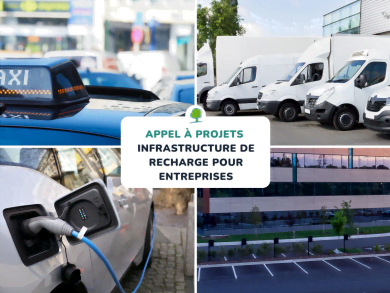Brussels helps car park owners install charging terminals
Brussels has launched a new initiative supporting electric vehicle charging for public and logistical vehicles, as well as taxis. This will provide funding for car park owners.
Public Service, Bruxelles Environnement's initiative and part of the city's ambition to develop a consequent network of battery loading points and charging terminals on its territory, provides financial aid to support private investments in charging infrastructure.
Owners of private parking lots (including taxi and logistics companies) can now benefit from financial helps between € 25.000 and € 100.000 to support the installation of electric charging infrastructure. This measure aims to boost the development of electric (semi-public) charging points in Brussels, with special attention to impactful sectors, such as logistics and taxis.
To receive the funding, the selected submitters should spend the grant on adapting and reinforcing the electrical network or infrastructure, not on the charging terminals themselves. After benefiting from financial help, the charging infrastructure should be available to neighbours 24/7, with exceptions made for taxi and logistics companies.
Want to submit an application?
Applicants can submit projects until Friday,15 July 2022 at noon (12.00 CEST) via e-mail: lem@environnement.brussels by sending the following documents:
- Candidacy form completed and signed
- Description of the project content
- Project budget
Bruxelles Environnement will organise an information session on Thursday, 23 June at 14:00 CEST (live at the organisation's premises)
Companies and private owners who apply for the help will benefit from free individual consultancy; this will guide them through the installation of their new charging point(s). The facilitator can be contacted here: Facilitateur.bornes@environnement.brussels
Interested in finding out more?
Through the Clean Vehicles & Air Quality Working Group, POLIS members share best practices and exchange knowledge on reducing transport-related emissions and accelerating the adoption of clean vehicles.

